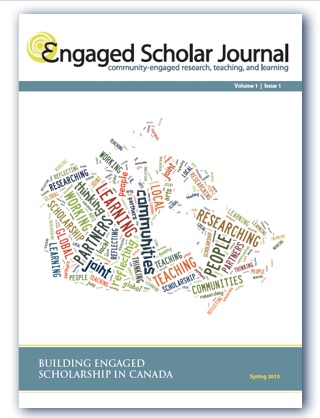Community Engagement in the Humanities, Arts, and Social Sciences: Academic Dispositions, Institutional Dilemmas
DOI:
https://doi.org/10.15402/esj.v1i1.20Keywords:
humanities, arts, and social sciences, institutional rewards, engagement, dispositions, facultyAbstract
Engaged scholarship is increasingly concerned with how community engagement might be institutionalized in the contemporary university. At the same time, it must be attentive to diverse academic approaches to knowledge and to the forms of engagement associated with them. Attention to this plurality is especially important in the humanities, arts, and social sciences (HASS). Based on a multi-method study conducted in the Faculty of Arts at a large western Canadian research university, this paper maps the demographic positions (gender, rank, and discipline) and scholarly dispositions (stances adopted toward the production of knowledge and the role of the academic) of HASS faculty and contract instructors onto the range of ways they perceive and practice engagement. Against this backdrop, we present a qualitative case study of two pairs of faculty that fleshes out the complexities and possibilities of divergent dispositions and the forms and experiences of engagement with which they are associated. We assert that understanding differentiated starting points to knowledge production among HASS academics is an important pathway to the fuller recognition and flexible institutionalization of engagement in research universities.Â
ÂDownloads
Published
How to Cite
Issue
Section
License
Authors who publish with this journal agree to the following terms:
- Authors retain copyright and grant the journal right of first publication with the work simultaneously licensed under a Creative Commons Attribution License CC BY 4.0 that allows others to share the work with an acknowledgement of the work's authorship and initial publication in this journal.
- Authors are able to enter separate, additional contractual agreements for the non-exclusive distribution of the journal's published version of the work (e.g., post it to an institutional repository or publish it in a book), with an acknowledgement of its initial publication in this journal.
- Authors are permitted to post their work online (e.g., in an institutional repository or on their website) after the publication of their work in the Engaged Scholar Journal.
- Please note that while every opportunity will be taken to ensure author participation in the editing process, due to time constraints final copyediting changes may be made before publication to ensure APA adherence throughout all submissions.




